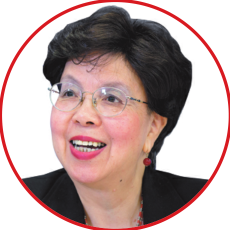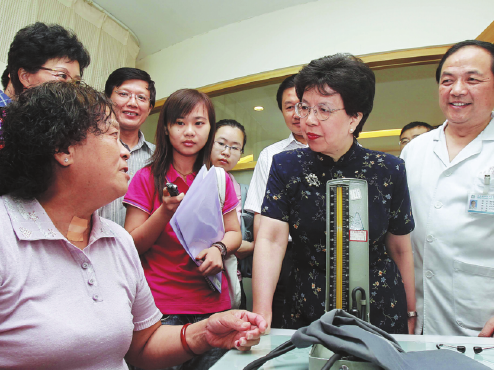
Aug 21, 1947, in Hong Kong
EDUCATION:
1973: Bachelor of Arts, home economics, Brescia University College
1978: Doctor of Medicine, University of Western Ontario
1985: Master of Science, public health, National University of Singapore
CAREER:
1978-89: Medical officer, Hong Kong Department of Health
1989-92: Assistant director, Hong Kong Department of Health
1992-93: Deputy director, Hong Kong Department of Health
1994-2002: Director, Hong Kong Department of Health
2003-05:Director, department for protection of the human environment, World Health Organization
2005-06: Assistant director-general for communicable diseases, WHO
2007-17: Director-general, WHO
2018-present:Member of the National Committee of the Chinese People's Political Consultative Conference
Focus on health the right prescription
Editor's note: Last year marked the 40th anniversary of the launch of China's reform and opening-up policy. China Daily profiles people who experienced or witnessed the important drive.

A country's wealth depends on a country's health - that's a motto former World Health Organization director-general Margaret Chan Fung Fu-chun holds dear.
The Hong Kong-born physician said the key to China's achievements in the past four decades lies in its government's commitment to focusing on people's needs while seeking the nation's development.
"Prosperity for all is impossible without health for all," she said. "In the past 40 years, China has always put the people's health at the top of its policy agenda, working hard to improve the people's health and fitness, and making universal health a primary goal of development."
Chan became one of China's most high-profile UN officeholders when she headed the WHO for a decade from 2007.
Her lifetime career in health began 29 years earlier, in 1978, when China embarked on reform and opening-up.
"The year (1978) is important for me because it marked three meaningful things: my graduation from university; the beginning of China's reform and opening-up; and the recognition of China's promotion of health for all from the WHO," she said.
After Chan obtained her medical degree from the University of Western Ontario in Canada, she joined the Hong Kong Department of Health as a medical officer in 1978.
As a civil servant in Hong Kong under the British administration, Chan said she did not have many chances to travel to the Chinese mainland. But in an occasional meeting with Halfdan Mahler, then WHO director-general, she noticed that China was undergoing an "extraordinary health movement" at that time.
"I remember Mahler had praised the mode of 'barefoot doctors', and said it was an attempt that can be promoted to more developing countries in the world," she said.
When the People's Republic of China was founded in 1949, it had a weak medical and healthcare system due to low levels of economic and social development. Chinese people, mostly living in rural areas, lacked basic medical insurance and knowledge.
The nation had only 3,670 medical and health institutions, 541,000 health workers and 85,000 beds at health institutions. The average life expectancy was 35 years.
In 1951, the government declared that "basic healthcare should be provided by health workers and epidemic prevention staff in villages". The country later started a program to train villagers to provide basic medical care to fellow villagers, at home and at work. By the 1960s, more than 200,000 village doctors had been trained across China.


